Since its establishment in 1859, Yme Kuiper has developed from a flour mill, where the first generation ground flour, to an excellently equipped company with more than sixty employees. Scroll down to see our timeline and learn more of Yme Kuiper’s history.
1862: IJme Kuiper, the founder
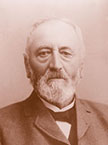 The company’s history begins with Berend Jans Kuiper, who was not only the town treasurer for Kuinre, but also owned a windmill at the start of the nineteenth century.
The company’s history begins with Berend Jans Kuiper, who was not only the town treasurer for Kuinre, but also owned a windmill at the start of the nineteenth century.
His son IJme was born in 1838 and he started working with his father in the windmill at a young age.
IJme married when he was 20 years old and he settled as a miller in Oldemarkt. Since the mill did not provide a very good living, he searched for a new venture in Heerenveen.
1862: flour mill 'De Volharding' in Heerenveen
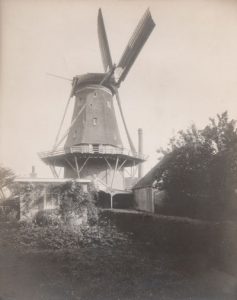 On 5th August 1862, windmill ‘De Windhond’ located at the Molenwijk in Heerenveen, was purchased for the price of NLG 7,100 (equivalent to EUR 3,221.84).
On 5th August 1862, windmill ‘De Windhond’ located at the Molenwijk in Heerenveen, was purchased for the price of NLG 7,100 (equivalent to EUR 3,221.84).
IJme Kuiper milled flour for bakeries. Twenty years later, he and his family moved into the mill ‘De Volharding’ in Het Meer in Heerenveen.
IJme was a socially-engaged man. He had the same ideas as Ferdinand Domela Nieuwenhuis, who was a regular visitor at his mill. Together, they organized meetings for local workers.
1900: Berend-Jan Kuiper
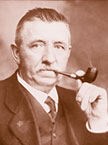 In the early 1900s, Berend-Jan, one of IJme’s two sons, followed in his footsteps.
In the early 1900s, Berend-Jan, one of IJme’s two sons, followed in his footsteps.
Life was not easy for a miller at that time, because windmills were having a hard time as a result of industrialization. Despite that, Berend-Jan remained a miller for his entire life.
1900: Matthijs Kuiper
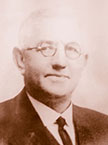 IJme’s other son, Matthijs, was not so interested in becoming a miller and went to technical school in Amsterdam, where he learned to become a carpenter. At the age of 27, Matthijs went to Africa, where he helped build the government building in Pretoria.
IJme’s other son, Matthijs, was not so interested in becoming a miller and went to technical school in Amsterdam, where he learned to become a carpenter. At the age of 27, Matthijs went to Africa, where he helped build the government building in Pretoria.
The start of the Boer War in 1897 forced him to return to the Netherlands, where he joined the family company.
The company was then mainly concerned with milling baking products for a price of 20 cents for a sack of coarse rye (for rye bread) and 40 cents for a sack of fine rye (for biscuits). They decided to purchase a petrol motor, so they were no longer dependent on the wind.
1923: Firma IJme Kuiper & Zonen
After a number of difficult years during the great recession (end of the nineteen twenties), IJme Kuiper continued the company under his own leadership. The trade in fodder became less important and the trade in wheat flour, wheat meal and rye flour became the main activity. Thanks to IJme Kuiper’s enormous drive and work ethic, the company started to recover.
1930: IJme Kuiper
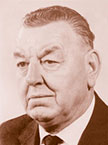 In the period between the two World Wars, IJme decided to do things differently. Partly thanks to the relationship the company already had with Wessanen Meelfabriek, he was able to become a flour trader instead of a flour producer. IJme built new company premises on the outskirts of Heerenveen.
In the period between the two World Wars, IJme decided to do things differently. Partly thanks to the relationship the company already had with Wessanen Meelfabriek, he was able to become a flour trader instead of a flour producer. IJme built new company premises on the outskirts of Heerenveen.
1940: From miller to flour trader
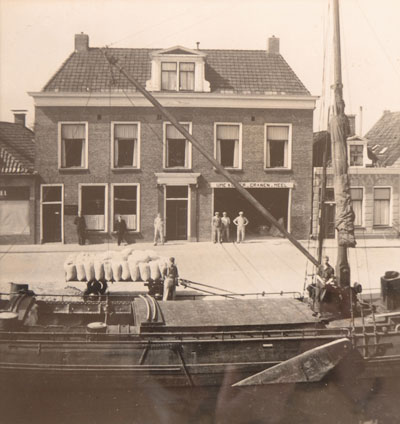
A few years later, the company moved to new premises yet again. This time, they moved opposite the Posthuis. Business went well and the company soon had to expand again. During the Second World War, the premises from the Raad van Arbeid on the Herenwal was purchased. There was enough space behind the building for a large warehouse and the company was located on the water’s edge, where barges could easily be unloaded. It was initially not so easy, though, because the quay was high. An ingenious rail system was constructed to hoist up the trolleys loaded with sacks of flour. During that time, the company only traded flour from Wessanen. Occasionally, a small batch of American flour would arrive, which was used to bake special rolls.
1950: The fourth generation of the Kuiper family
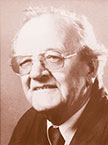
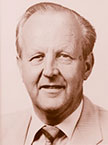
In 1950, Berend-Jan (Bennie) and Jacob Roelof (Jack), IJme’s sons, joined the company. Each family occupied half of the top floor of the building.
As it turned out, Bennie was more interested in the car trade and he decided to pursue a career there. Jack, on the other hand, remained in the family business.
Jack was Henk and Yme’s father. The Kuiper family lived above the business until the end of the nineteen sixties, so the boys always had a prominent outlook on the boats that were being unloaded.
1968: Road transport
1980: Different times
1990: The fifth generation of the Kuiper family
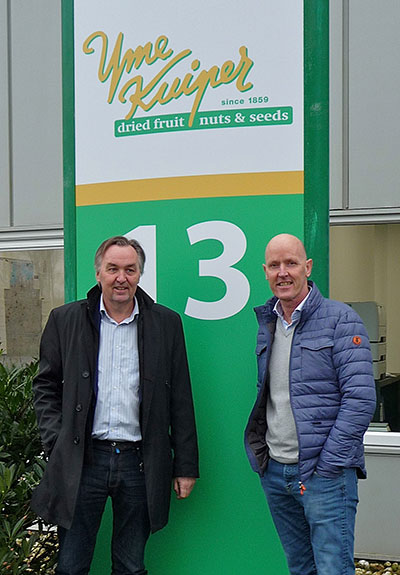
The nineteen eighties were economically uncertain times and it was, therefore, not surprising that Jack advised both of his sons to learn a trade and not to rely on the family business. Yme went to study law and started working as a lawyer specializing in agricultural law. Later, he also took on other responsibilities. For example, he was involved in football club SC Heerenveen from an early age, where he fulfilled a number of mostly volunteering roles. At the end of the nineteen nineties, he was officially appointed director. He combined this job for a number of years with his job as a lawyer.
In the meantime, Henk had joined his father’s company in 1990 and a couple of years later, Yme and Henk took over the company. Since there was a demand for washed raisins, that was the way forward for the company. In 1996, they invested in a washing line for the premises on the Leeuwarderstraatweg. They imported the raisins themselves and washed and prepared them for industrial bakeries. During this time, the quality requirements for food processing became increasingly stricter and they had to make further investments in order to remain certified. That was a hard nut to crack and it was quickly decided that it was probably more sensible to build a completely new company at the Friesland-West business park in Nijehaske.
1998: Storage and production facility in one building
The future
Jack sadly died in 2015. He was 85 years old and could be found at the company every day until late in his life. It is unclear at the moment whether the children of the Kuiper brothers will take over the company. But who knows what the future holds? Maybe even a sixth generation of the Kuiper family will work in the company.
